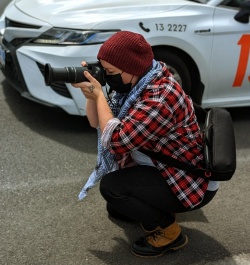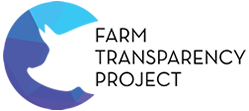News & Media > Editorials > Where Is Yandina?
Where Is Yandina?
On 14/02/2020, a Tasmanian owned, trained and raced thoroughbred appeared at the Andrew Wilson & Co. horse auctions at Echuca, a sale frequently attended by kill buyers seeking cheap horses to slaughter for both pet meat and export human-grade horse meat.
Yandina was bought in 2012 at the Inglis Great Southern Weanling Sale by Tasmanian owner/trainer R. Taylor. He was trialled three times on Tasmanian tracks between 2013 and 2016, was spelled for 108 weeks after his first trial and let up for 6 weeks after his third trial, and was raced once at the Tasmanian Turf club in Launceston on 09/03/2016. Finishing 10th from a field of 10, this was to be Yandina's first and final race, with $0 in career prize money. He is listed on Racing Australia as having been retired in 2016.
How or where Yandina spent the four years between retirement and his eventual sale at the Echuca auctions is not on the public record. Nor is it publicly known who bought him; whilst it is possible he was purchased by a private home, it is also possible he was sold to a kill buyer, potentially ending his days at a slaughterhouse. What we do know is that he was listed as "needing consistent work", and that roughly three quarters of the horses sold at Echuca that day went for $400 or less.
Proponents of the racing industry claim that what happens to horses leaving the industry is not their jurisdication, that they are no longer responsible for the horses once they enter private ownership, and that it is unnecessary for such information to be on the public record.
In the 2018-2019 financial year, TasRacing was the recipient of $31,375,661 from the Tasmanian Liberal Government, monies which constituted the majority of their total revenue and other income for the period. This money was used for prizemoney and industry funding, raceday and racing expenses, sales and marketing, as well as other assorted operational matters. During the shutdown of the Tasmanian racing season due to COVID-19, Tasmanian horse and greyhound racers became the recipients of supplement payments for animals in work ($38/per day for thoroughbreds, $35/per day for harness racers, $50/per week for greyhounds plus $20/per week for pups). The Tasmanian Liberals also boosted prizemonies through a $600,000 "loan" which was available to be drawn from as needed.
Without government financial contributions the Tasmanian racing industry could not continue. These are public monies being allocated to and distributed amongst an industry that deals in thousands of individual lives every year for private profit. The very public nature of government expenditure must be applied to the horses and dogs who are bought, raced and sold by the industry, even beyond retirement. An industry using public funds for it's very existence must be transparent in every matter, not least of all in regards to the lives they exploit on and off the track.
Where Yandina went, whether he was slaughtered or entered a private home, is a matter for the public record, just as it is for all horses leaving the industry. The lack of concern that racing proponents have for these animals is a damning indictment on an industry that profits from the exploitation of non-human animals at public expense.
 Kristy Alger
Kristy Alger
Kristy Alger is an animal rights activist from lutruwita/Tasmania. She is currently the key organiser for Animal Liberation Tasmania, and head campaigner for Defund Tasracing. Alger is a published author, releasing Five Essays for Freedom: a political primer for animal advocates in 2020.


